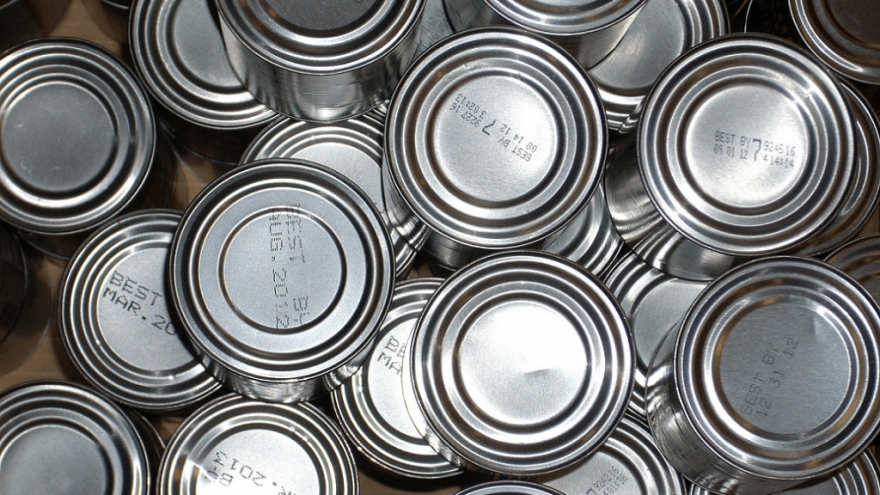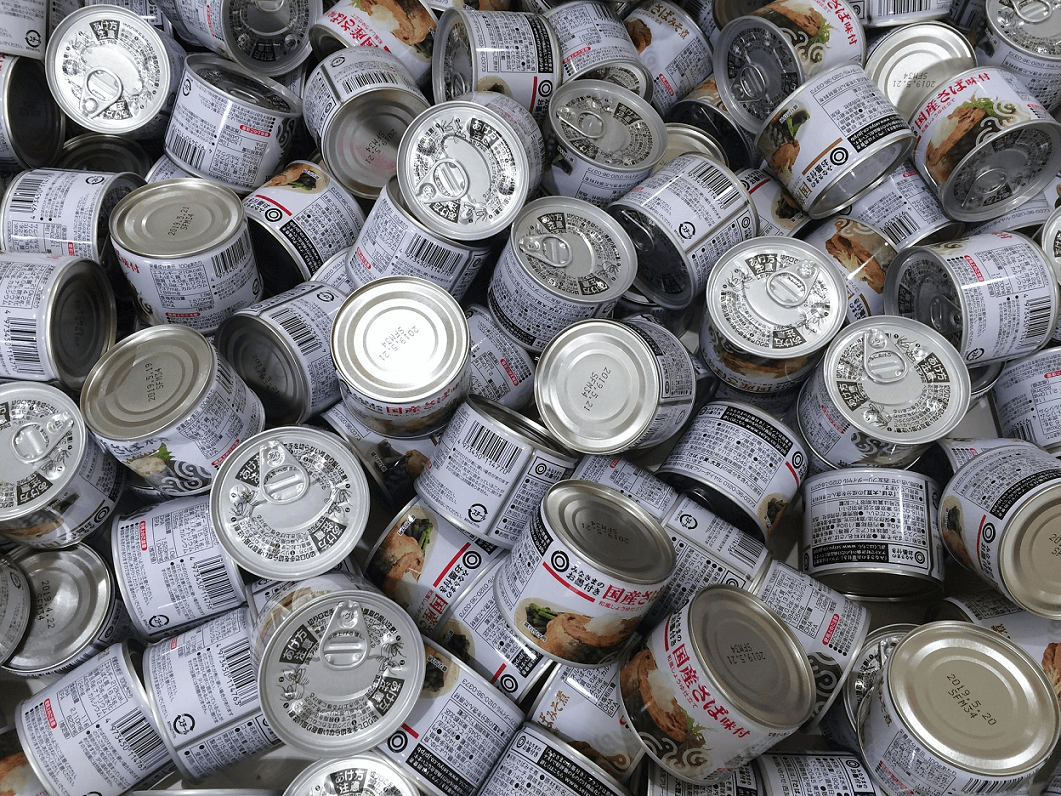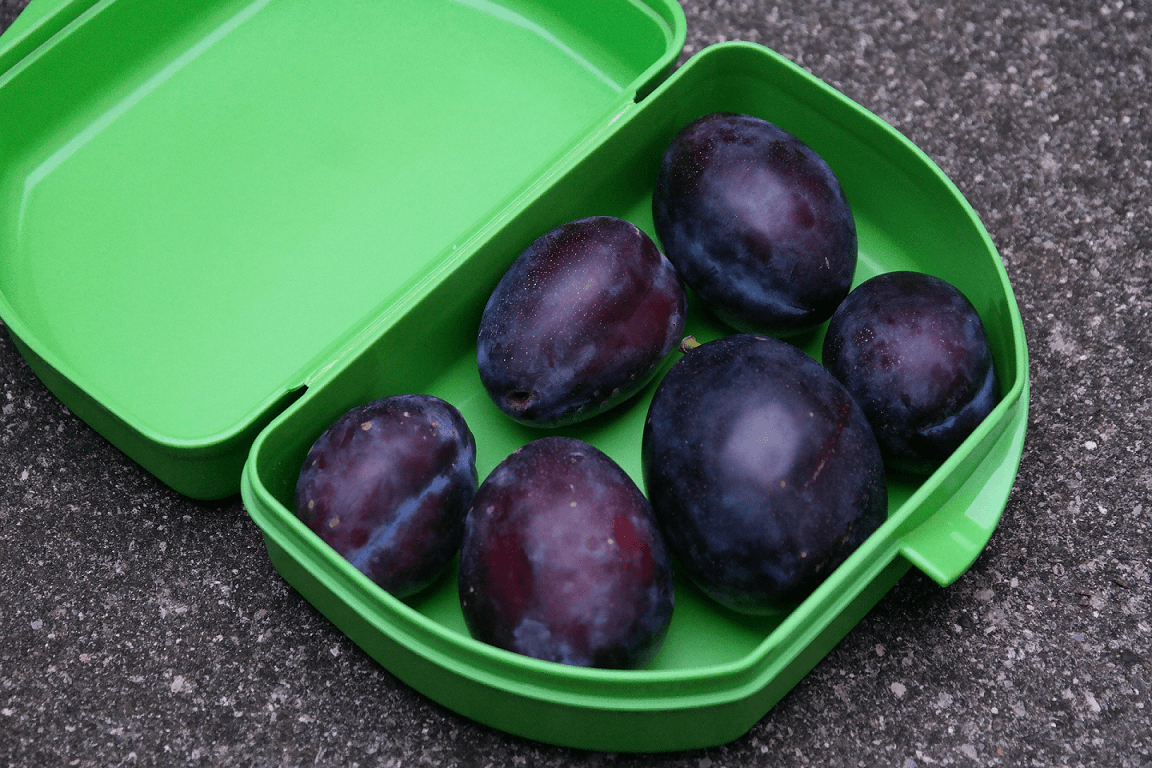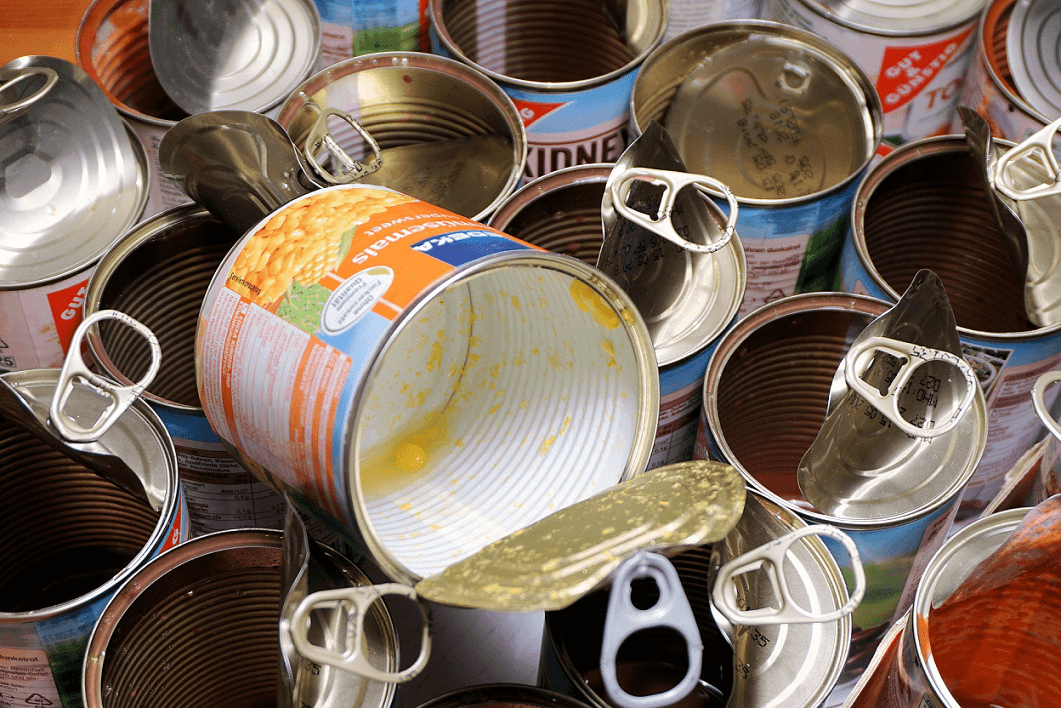Can Canned Food Harm Your Health in the Long Run?

A lot has been done to raise awareness about the potential dangers of bisphenol A (or BPA) in recent years. And while most of us know by now that single-use plastic containers may not be the best idea, both from a health- and environmental perspective, many are still unaware that BPA also lurks in numerous canned foods and beverages.

What is BPA?
Bisphenol A, or BPA, is a man-made chemical used in the manufacturing of clear, hard plastic items and resins. Such items include single-use, disposable water bottles, plastic storage containers, plastic tableware (including those aimed at the baby and toddler markets) and microwave-safe cookware. And while these items might seem harmless enough, those containing BPA may be doing your long-term health more harm than good.

What are some of the purported dangers of BPA?
More and more scientific evidence pointing to the potential dangers of BPA, even in low doses, is coming to light. Also labeled as an “estrogen-like, endocrine-disrupting chemical”, studies have linked BPA to the following, among others:
- Potential impairment of the immune system in the unborn and the young. A study published in PLOS One in 2014 looked at the impact of BPA on the immunity of mice when ingested perinatally (i.e both before and right after birth). It was found that “perinatal BPA exposure impairs cellular response to food antigens, and increases susceptibility to intestinal parasitic infection in the juveniles”. (It should be noted that peer reviewers have identified a number of technical limitations of this study, thereby questioning its relevance to human health.)
- A potential negative effect on fertility and sexual functioning in both men and women. As such, the European Union (EU) nominated BPA for classification as a Category 1B reprotoxin in 2016.
- Routine exposure to BPA may negatively impact the development of breast tissue. A number of studies have linked repeated exposure to BPA to the development of breast cancer.
- BPA exposure has also been linked to the following health issues: Prostate cancer, obesity, behavioral problems, diabetes and heart disease.
The use of BPA in food packaging materials around the world
And while not all regulating authorities are equally convinced about the dangers of BPA in low doses, some have taken drastic steps in this regard. French authorities, for example, led the way by completely banning food packaging (including tin cans) containing BPA in 2012. This ban was, however, later partially lifted to allow the use of BPA in products earmarked for export purposes.
Other big role players, including Canada, the US, China and the EU, have furthermore banned the use of BPA in baby bottles and baby food packaging and, in some cases, also children’s sippy cups.

How to make better canned food choices
So what do you do if you’re based in an area where BPA is not banned from food packaging? Here are some tips for choosing and using canned food items with greater peace of mind:
- Study your labels. Remember that BPA is not the only thing associated with canned foods that can potentially be bad for you! So be sure to carefully read those ingredient lists. Make sure that it is short, easy to pronounce (i.e. contains real food items, not chemically manufactured preservatives and junk), and doesn’t contain any added sugar, syrups or salt. And, of course, also make sure that the can is labeled as being BPA-free!

- Look for and choose alternative packaging materials. If the product you’re looking for is unavailable in a BPA-free can search for safe, alternatively packaged options. These include glass or boxed containers.
- Consider skipping canned foods and doing weekly food-prep instead. Yes, we know that your schedule is hectic. And yes, we know that you have better things to do than soak and cook masses of garbanzo beans. But if it boils down to the health of your family, what’s two hours over a weekend to prepare some fresh, nourishing staples for the week ahead, right?
- Opt for fresh where possible. The dangers of BPA aside: Did you know that Vitamins A, C thiamin, and riboflavin are also often destroyed during the canning process? So if you’re aiming to meet all your micronutrient needs through eating canned foods, you might want to include some fresh alternatives too.
- Store leftovers in glass or stainless steel containers. You don’t want to go through all the trouble of avoiding canned BPA while out shopping and then keeping left-overs in BPA-laden storage containers!
Knowledge is king
So arm yourself with knowledge before heading out to the grocery store next time. Take time to read those can labels. And if it doesn’t say BPA-free, or you can’t pronounce the ingredients, it may be time to search for healthier options.
Also, don’t discard the idea of a weekly meal-prep before you’ve tried it at least a few times. Yes, it can be a schlep. But there are few things as rewarding as knowing that you’re skipping the BPA, preservatives, and junk and nourishing your family with nothing but natural, wholesome goodness. Something that’s certainly worth two hours of your time over a weekend!
Sources
- , The dangers of eating canned food, Online publication
- , What's in that can? 5 Things to know before you buy, Online publication
- , Does canned food cause cancer?, Online publication
- , Perinatal exposure to a low dose of bisphenol A impaired systemic cellular immune response and predisposes young rats to intestinal parasitic infection, Scientific journal
- , F.D.A. Makes It Official: BPA Can’t Be Used in Baby Bottles and Cups, Online publication
Latest Articles
 Is Running on a Treadmill Easier Than Running Outside?Runners have their own preferences, whether it is treadmill running, running outside on the road, or exploring trails. So...
Is Running on a Treadmill Easier Than Running Outside?Runners have their own preferences, whether it is treadmill running, running outside on the road, or exploring trails. So... Is It OK to Use Trail Running Shoes on the Road?While trail running shoes can be used on roads, especially in situations where a runner encounters mixed terrains or pref...
Is It OK to Use Trail Running Shoes on the Road?While trail running shoes can be used on roads, especially in situations where a runner encounters mixed terrains or pref... How to Fix Sore Quads After Running?Rest, ice, gentle stretching, and over-the-counter pain relievers can help soothe sore quads after running. Also, ensure ...
How to Fix Sore Quads After Running?Rest, ice, gentle stretching, and over-the-counter pain relievers can help soothe sore quads after running. Also, ensure ... 10 Fruits With The Most Electrolytes to Replace Sports DrinksThese fruits are high in electrolytes such as potassium, magnesium, and calcium, essential for hydration, muscle function...
10 Fruits With The Most Electrolytes to Replace Sports DrinksThese fruits are high in electrolytes such as potassium, magnesium, and calcium, essential for hydration, muscle function...

